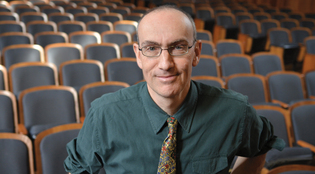 loading
loading
Light & VerityNew provost doesn’t want to be a presidentA scholar of “decision theory” with lots of decisions to make.  Michael MarslandView full imageEven if you haven’t the foggiest idea what a provost does, you may know that the last five Yale provosts have gone on to be presidents or top officers of elite universities. Does economist Ben Polak, tapped for the job in January to succeed president-elect Peter Salovey ’86PhD, have similar dreams? Perish the thought. “If I do have one qualification for this job,” says Polak, “it’s that I don’t have ambitions to run a university. It’ll make it easier for me to not necessarily be popular, and a little easier to say no.” And saying no is one of the provost’s biggest jobs, particularly when Yale is facing a $40 million budget deficit. The provost, whom Yale describes as the university’s “chief academic officer,” oversees budgets and faculty allocation for teaching and research in the university. In the aftermath of the 2008 financial downturn—when Yale’s endowment lost nearly $6 billion—the provost presides over scarcer resources and tough decisions: what initiatives will get funded, or what measures will be taken to save administrative costs in academic departments. As it happens, Polak, the William C. Brainard Professor of Economics and chair of the economics department, has devoted his research to what economists call “decision theory”: how people decide what to do in the face of uncertainty. “Decision theory doesn’t tell you what to do,” he says, “but it tells you how to organize your thinking.” He says that experience “might help a little bit” in his new job. He began that job in January. Salovey, his predecessor, does not become president till July 1, but Salovey said when Polak’s appointment was announced that he will spend the rest of the academic year as “full-time president-elect,” working on the transition from Richard Levin’s presidency to his own. A native of England, Polak is a graduate of the University of Cambridge and holds a PhD from Harvard. He joined the Yale faculty in 1994. He has spent several years on the university budget committee, and he has a strong reputation as a teacher: he has won teaching prizes in both Yale College and the Graduate School, and his undergraduate course on game theory is available in the online Open Yale Courses series. Polak, who has a faculty appointment in the School of Management, has family ties across the university: his wife, Stefanie Markovits ’94, ’01PhD, is a professor in the English department, and his brother-in-law, Daniel Markovits ’91, ’00JD, is the Guido Calabresi Professor of Law at the Law School. Polak and his wife have three young children.
The comment period has expired.
|
|